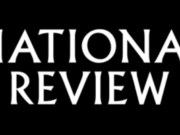This piece originally appeared in the Wall Street Journal on December 17, 2023. It was co-authored by Bradley A. Smith and Eric Wang.
A federal judge on Monday will consider a Minnesota law that surreptitiously attempts to overturn the U.S. Supreme Court’s holding in Citizens United v. FEC (2010) that corporations have a constitutional right to speak independently about politics.
While Citizens United and other judicial decisions have loosened restrictions on corporate political speech, courts have upheld longstanding bans on political speech by foreign nationals. Therefore, Minnesota and other opponents of corporate speech now seek to redefine large swaths of American businesses as “foreign influenced” to stop their political engagement. Seattle, St. Petersburg, Fla., and Alaska have joined Minnesota in passing laws banning political speech by so-called foreign-influenced corporations. Lawmakers in numerous other states and Congress have introduced similar bills.
The Minnesota law is typical of these measures, making Monday’s hearing an early test of their constitutionality. The law defines “foreign-influenced corporations” as including any U.S. company in which a single foreign investor has “direct or indirect beneficial ownership” of as little as 1% of total equity. This status also may be triggered if hundreds or even thousands of foreign stockholders collectively own 5% of shares. It doesn’t require these stockholders to be of the same nationality or to collude to influence so much as the corporate cafeteria menu.
The law’s breadth is matched by its vagueness. Foreign-influenced status also may be triggered if any foreign investor “participates directly or indirectly in the corporation’s decision-making process with respect to the corporation’s political activities in the United States.” If a single foreign stockholder casts a proxy vote on an activist-shareholder proposal, that could bring the state’s corporate speech ban into effect.
The charade is obvious: The left-wing Center for American Progress estimates that 98% of publicly traded companies would trigger these thresholds. Many privately held business likely would as well. Once defined as foreign-influenced, a corporation is prohibited from making contributions or independent expenditures to promote or oppose candidates for public office. This includes lobbying legislators and the governor on appointed positions. The ban further applies to corporate activities that promote or oppose ballot measures. Foreign-influenced corporations also may not contribute to organizations that support or oppose candidates or ballot measures. The Minnesota law even seems to ban companies from engaging in these activities at the federal level, despite federal law to the contrary.
Though opponents of corporate political speech act as if large businesses serve as the puppet masters of politics, most corporations don’t engage in campaign spending at all. For-profit corporate funds amount to about 2% of total political spending in the U.S. per election cycle. For businesses, the right to speech serves mostly as an emergency tool. Elected officials wielding enormous power to regulate the private sector shouldn’t be permitted to immunize themselves against critique from those they govern.
The Minnesota Chamber of Commerce, with support from the U.S. Chamber of Commerce, is seeking a preliminary injunction against the state’s law at Monday’s hearing. The Minnesota Chamber merely seeks to preserve its right, and that of its members, to respond when government threatens workers’ livelihoods, investors’ interests and the vibrancy of free enterprise.
How the court rules will determine if all-American brands that manufacture in the U.S.—such as Louisville Slugger, Jeep and Harley-Davidson—can keep the First Amendment rights the Supreme Court has upheld.














